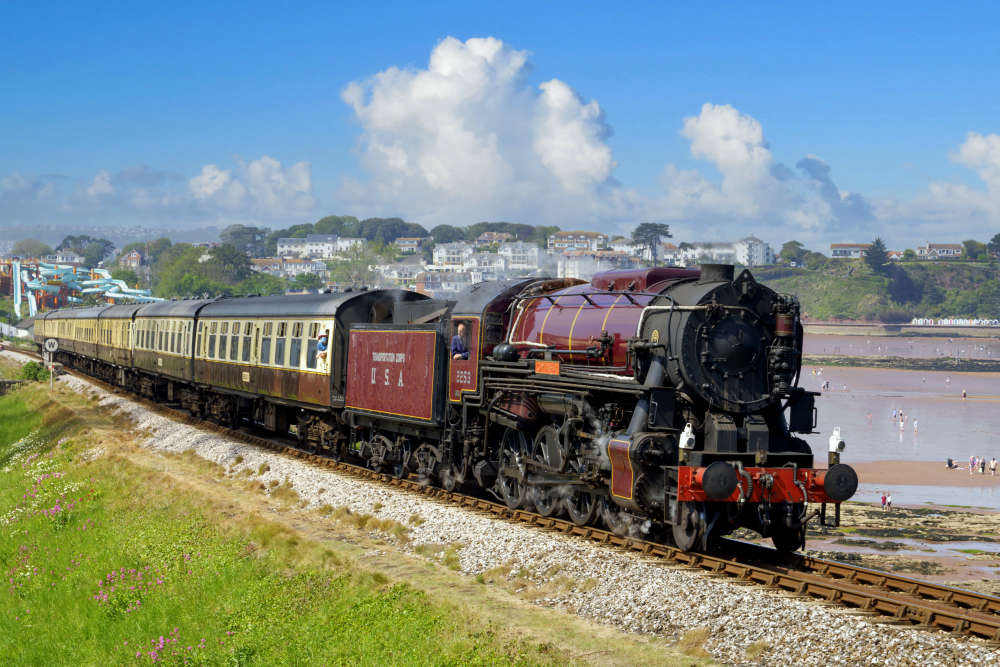
Loco named after 'Bloody Omaha' invasion beach
EIGHTY years ago today, Devon was poised to play its part in the most audacious military operation of the Second World War.
Huge areas of the South Hams had been evacuated so troops could rehearse at Slapton what they would do when their landing craft deposited them on the beaches of northern France. Slipways at Plymouth, Brixham and Torquay were being made ready to launch them for the real thing.
Soldiers from the 2nd Ox and Bucks Regiment attacked the bridge at Countess Wear on the outskirts of Exeter because it was just like Pegasus Bridge at Benouville, which they would have to seize for real on 6 June 1944.
US troops massed at a huge marshalling camp at Ivybridge and British and American aircraft mustered on airfields at Exeter, Smeatharpe and Dunkeswell
At Woolacombe beach American soldiers came ashore under heavy - and live - fire to give them a taste of how things would be.
Now one of the county’s preserved steam railway lines is to host a poignant tribute to the British and American servicemen who went ashore at Omaha Beach, where the carnage of the opening day of Operation Overlord - the D-Day landings - earned it the nickname ‘Bloody Omaha’.
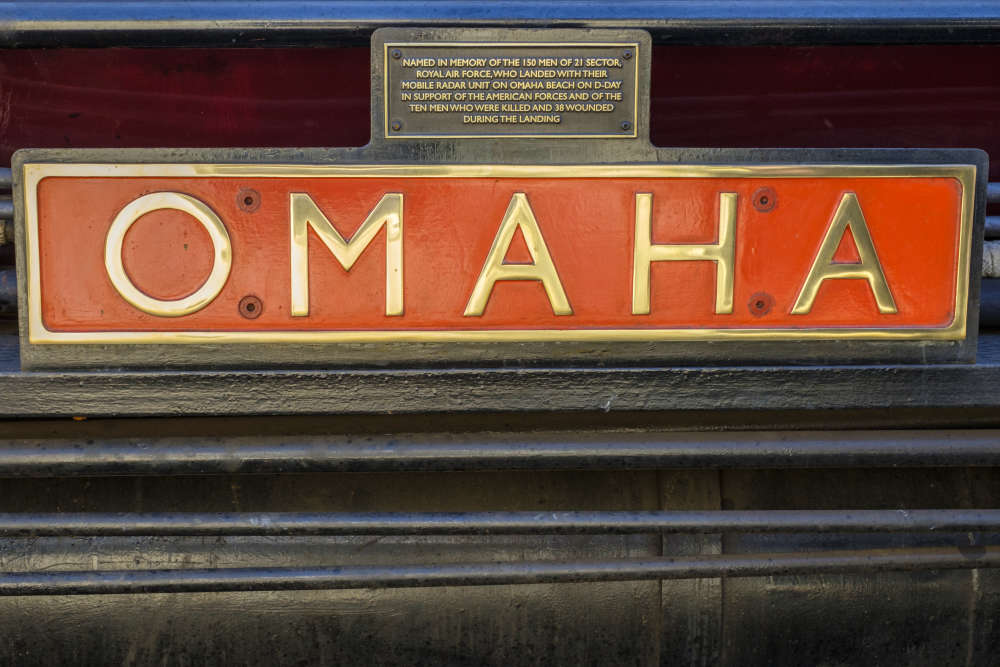 More than 5,000 vessels and 1,200 aircraft took part in the first phase of the operation. Locals said there were so many ships and landing craft in Tor Bay waiting for the signal to go that it looked as if you could walk right across the bay from one deck to the next without getting your feet wet.
More than 5,000 vessels and 1,200 aircraft took part in the first phase of the operation. Locals said there were so many ships and landing craft in Tor Bay waiting for the signal to go that it looked as if you could walk right across the bay from one deck to the next without getting your feet wet.
Next month a steam locomotive called Omaha, which has its own war stories to tell, will mark the 80th anniversary by running on the line that overlooks the bay - the same type of loco running on the same line as in 1944.
Omaha will run on the Dartmouth Steam Railway on 4, 5 and 6 June with a special headboard to mark the anniversary.
During the Second World War the United States Army Transport Corps was instructed to design and build locos suitable for hauling heavy freight trains in the UK, and later across Europe and Africa.
The S160 locos did a lot of the heavy lifting on Britain’s rail network as D-Day approached, and a dozen of them were based at Newton Abbot. They took supplies and troops to Kingswear and Dartmouth along the very line on which Omaha will run in June this year.
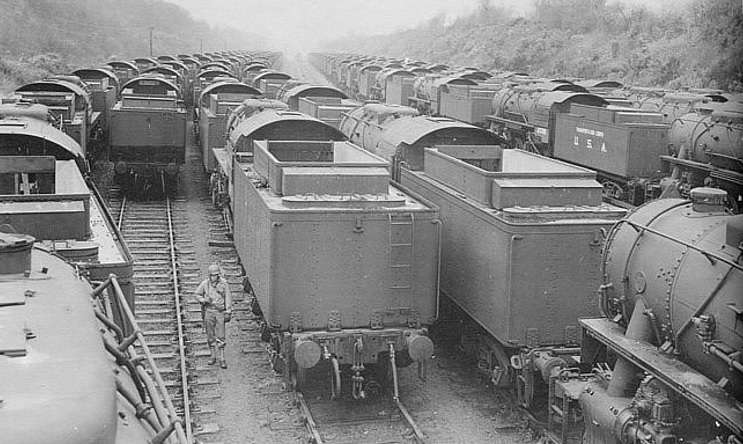
At the outbreak of war, Dartmouth was in decline as a commercial port, but its strategic importance was quickly recognised and the harbour began to fill with ships once more.
Shipbuilders Philip and Son built more than 230 ships between 1939 and 1945 and repaired many more, some of them barely limping back into the Dart with shell, mine or torpedo damage.
The Royal Dart Hotel at Kingswear became HMS Cicala, and was the base for a series of daring missions across the Channel. Fast patrol boats sped across to Normandy under cover of darkness with secret agents on board, gathering information which would be priceless on D-Day.
More than 2,000 of the S160 locomotives were built to move American and Allied munitions quickly and reliably to where they were needed. But they had been built quickly with austerity in mind, and many of those that weren’t targeted by the Luftwaffe broke down.
Railways were constant targets for enemy aircraft, but at least 25 of the heavyweights are still running, including number 2253, which was shipped to Britain from the US in May 1943 and did its duties here and in France before being sold off to the Polish state railway at the end of the war.
Bought by railway enthusiast and businessman Peter Best of Steam Powered Services in 2013, the loco underwent a major overhaul and steamed again in July 2019.
And it was at that point that Peter named the loco Omaha in honour of his father Squadron Leader Norman Best, who took part in the landings 80 years ago.
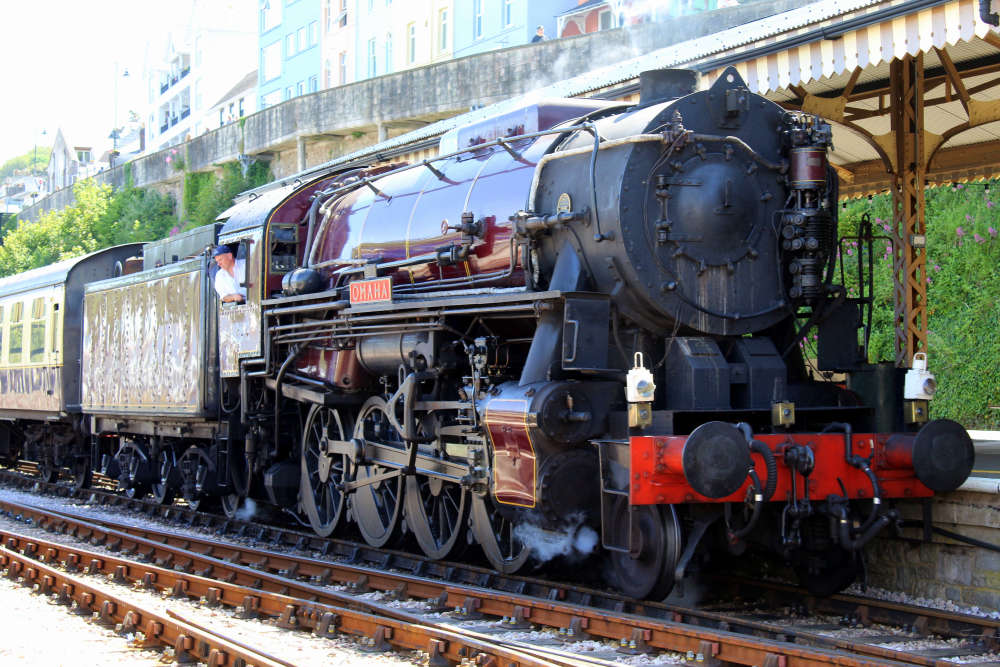 Omaha joined the fleet at the Paignton and Dartmouth Railway on a 10-year loan in 2019.
Omaha joined the fleet at the Paignton and Dartmouth Railway on a 10-year loan in 2019.
Up to 6,000 Allied service personnel were killed, wounded, or reported missing at Bloody Omaha in June 1944, with the heaviest losses incurred by the infantry, tanks and engineers in the first wave of landings.
It is often assumed that the troops landing on Omaha Beach - near Bayeux in Normandy - were all American, but a small Royal Air Force mobile radar unit went in during the evening of 6 June to work with the US forces.
They landed under ferocious fire and sustained heavy casualties. Many of their vehicles were sunk in the water or destroyed by gunfire.
Four officers, including Squadron Leader Norman Best, were awarded the Military Cross for their bravery.
Peter has told his story to Heritage Railway Magazine, which has featured Omaha and the Dartmouth Steam Railway across four colourful pages of its latest issue.
He said he had named the locomotive not only after his father but also to commemorate the unreported band of RAF radar experts and the US troops who gave their lives at Bloody Omaha.
He told the magazine: “Many veterans who have faced hostilities and witnessed death and mutilations choose not discuss their experiences even with their families and loved ones.
“This was the case with my father.”
He said he had known that his father served in the RAF as a radar expert, and that he was at the D-Day invasion where he won the Military Cross, but nothing more than those basic facts until a hand-written diary turned up when he was clearing his mother’s house following her death.
This led him to research the men and their mission, and he was able to interview a few surviving veterans so he could try to share their remarkable stories to a wider audience.
“With the anniversary upon us, this task continues,” he said. “Acknowledging that while Omaha Beach was predominantly an American beach, 150 brave and courageous RAF radar personnel flew the flag for British forces and suffered terribly on that day.
“No wonder my father did not want to talk about it.”
All photographs in this article appear courtesy of the Paignton and Dartmouth Railway
 Police appeal after phone theft scam
Police appeal after phone theft scam
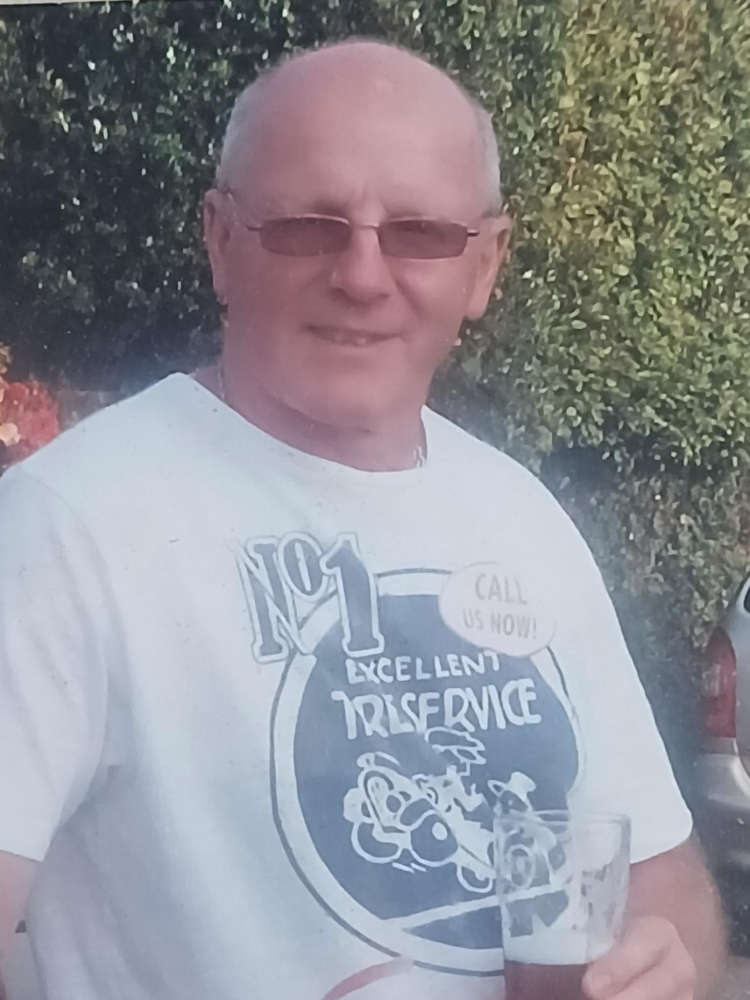 Concerns for missing Devon man
Concerns for missing Devon man
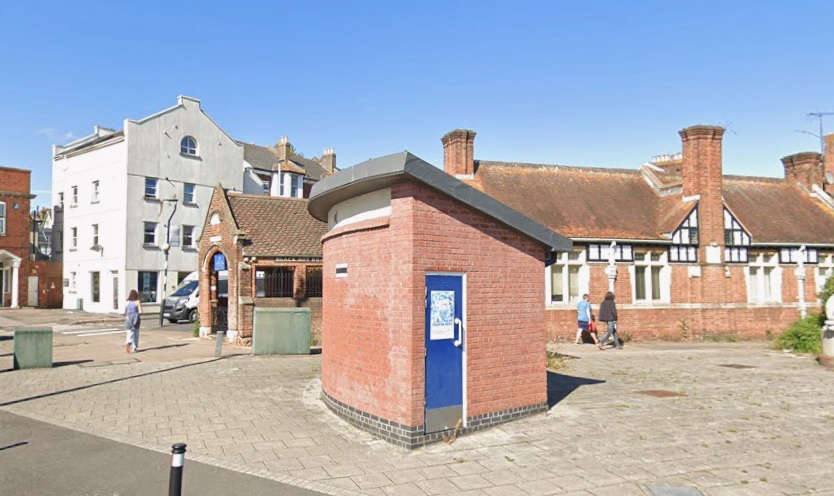 Exeter city centre toilets could become falafel outlet
Exeter city centre toilets could become falafel outlet
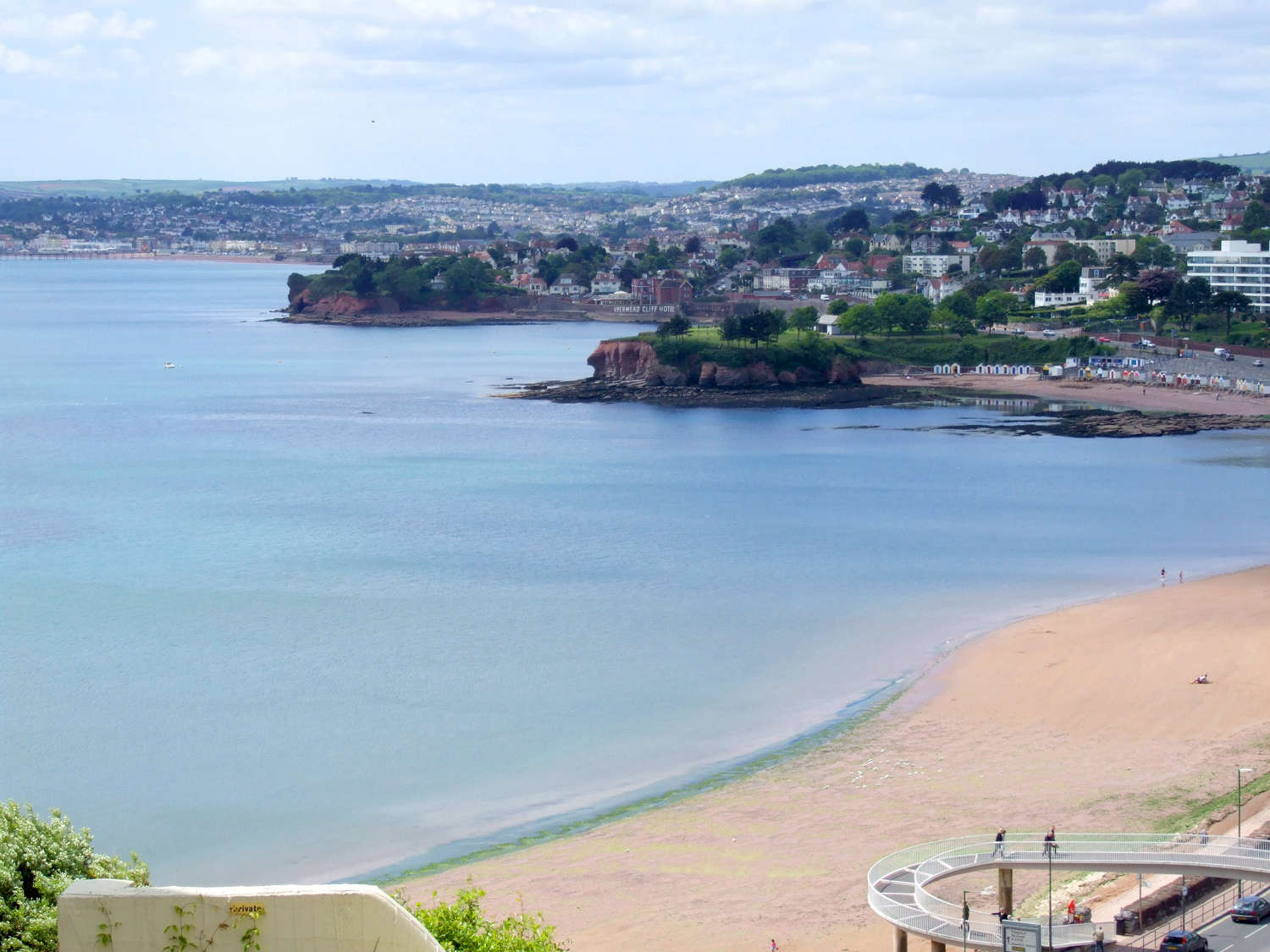 Torbay could quit blue flag scheme
Torbay could quit blue flag scheme
 Voaden raises Slapton Line plight to PM
Voaden raises Slapton Line plight to PM
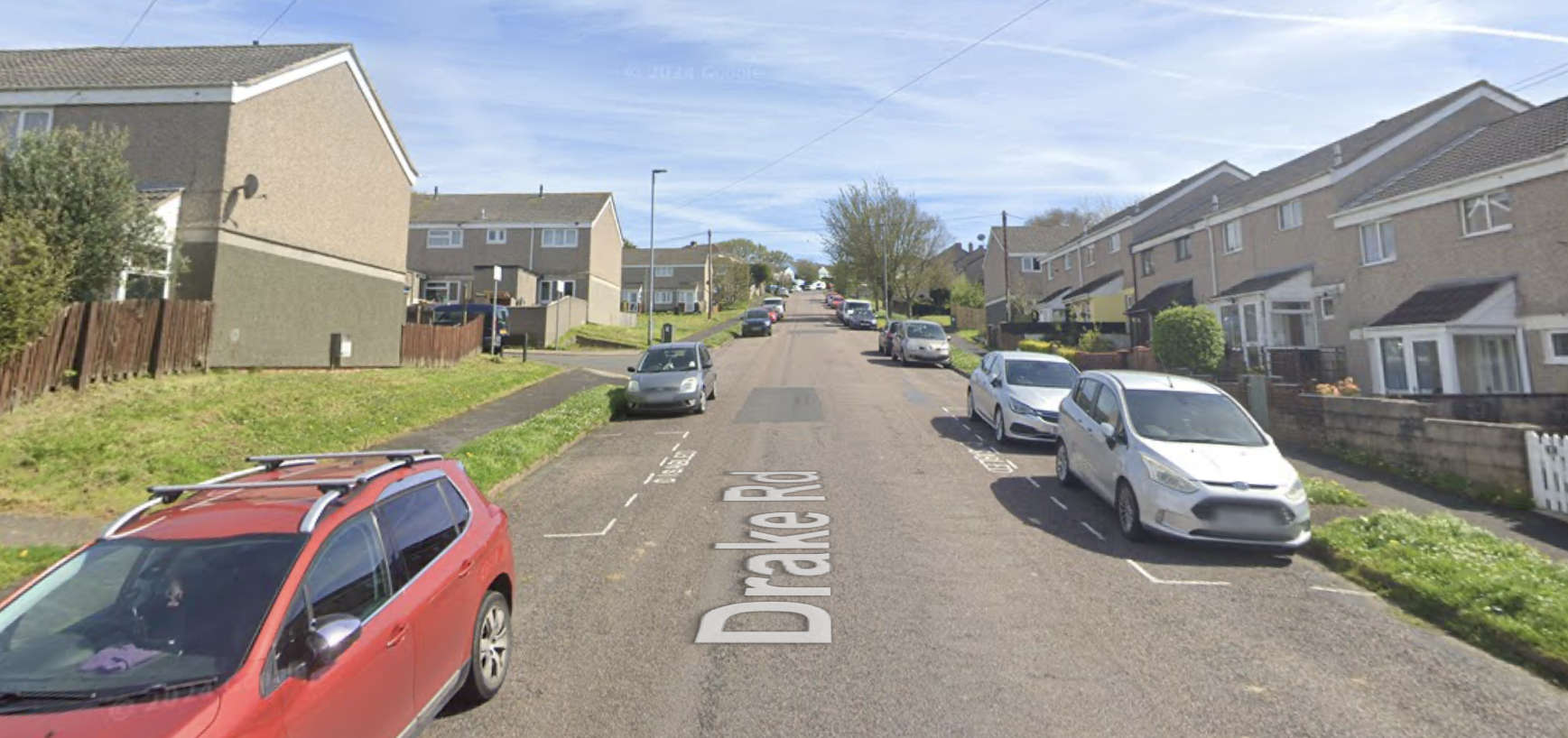 Exeter man charged with attempted murder of police officer
Exeter man charged with attempted murder of police officer
